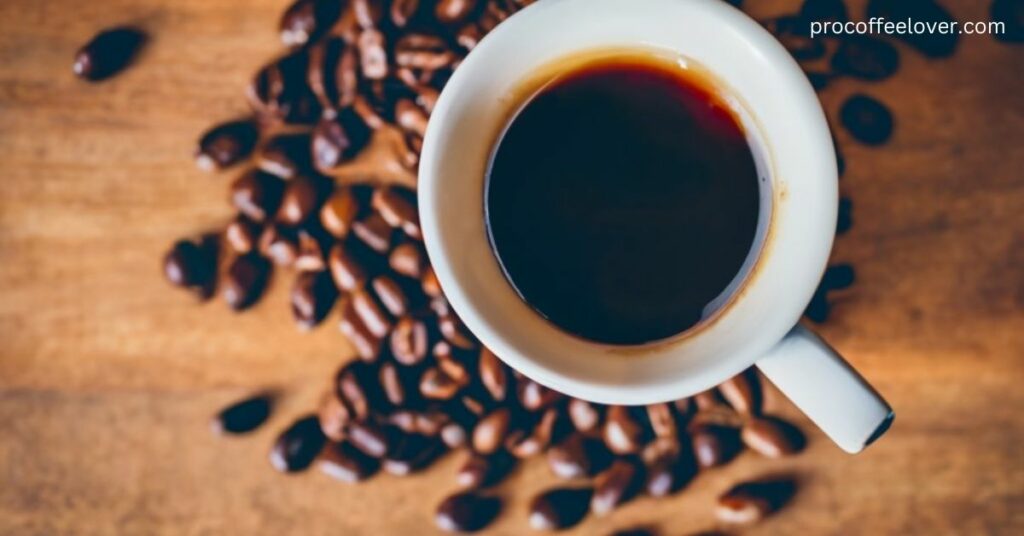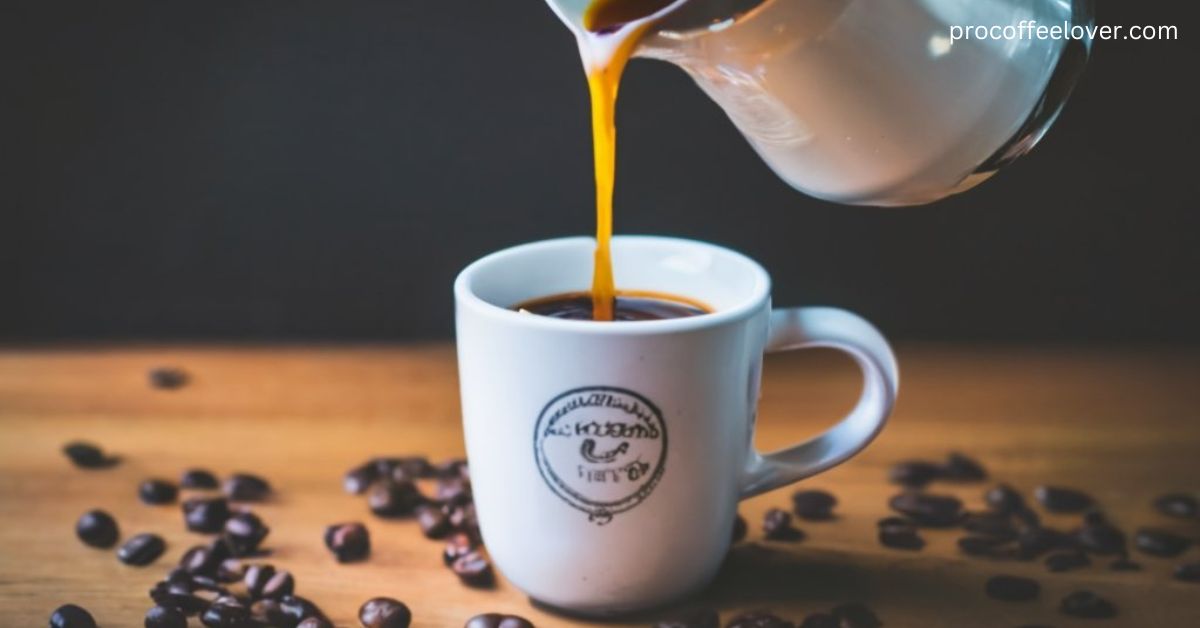Let’s discuss Does Coffee Make You Hungry? Coffee is one of the most beloved beverages worldwide, famous for its rich aroma of cocoa and the delicious combinations it offers. For many, it’s their go-to-morning dose of hyperactivity, without which individuals can’t seem to start their day.
Have you ever wondered whether your favorite coffee cup might increase your appetite? Whether that cherished morning energy kick keeps you active while keeping your needs in check or stirs up more hunger has been an ever-long topic of debate.
This article uncovers the exciting relationship between coffee and your appetite gears. Are coffee hunger pangs real, just a myth, or something in between? Let’s rest this debate once and for all today!
Caffeine And Hunger: Are They Correlated?
The Magic Behind Coffee
Coffee is a brewed beverage made from roasted cocoa beans that come directly from the cocoa fields. It has a magical ingredient called caffeine, which gives you that extra boost and makes you feel active. The underlying science involves heightened heart rate, enhanced alertness, and increased physical energy.
Though, does coffee make you hungry? Is it really the reason behind your frequent visits to the kitchen? For most, caffeine is known to have the opposite effect.
It reduces appetite and helps effectively in weight loss. It’s bitter taste acts as a great appetite suppressant, and gives most people the feeling of fullness. But, what’s the science behind this intriguing phenomenon?
What Prompts Hunger?

The feeling of hunger is initiated by a hormone called Ghrelin. Ghrelin is typically released on an empty stomach and signals the hypothalamus to start hunger pangs, signalling to the body that it’s time to eat.
Ghrelin’s high amount of blood induces appetite and makes you crave food. After you have had a sufficient portion of your meal, Leptin, a hormone that makes you feel full, is released to suppress appetite so you can end your food intake after having enough.
Another hunger hormone, an intestinal hormone called PYY (Peptide YY), is also released after a meal, giving you that feeling of fullness and meal completion.Also,see more about how much caffeine in Folgers instant coffee.
How Caffeine Enchants Your Body
Numerous studies have suggested that coffee has appetite-suppressing effects. However, recent research has unveiled a more intricate mechanism at play. Coffee appears to create a perception of reduced appetite and influences hormones that diminish one’s inclination to eat.
A research from 2014 was conducted in which participants drank a cup of coffee daily for four weeks. At the end of four weeks, the participants had lower ghrelin concentrations in their blood after coffee intake. Due to decreased ghrelin levels, the individuals were also seen with a gradual decrease in diet over four weeks.
Another study also showed that after drinking coffee, the blood tested to have raised levels of PYY, an appetite suppressant released after meals.
These fluctuations in hunger hormones make you feel less hungry after gulping a cup of coffee and reducing your food intake. However, these effects will gradually diminish as time passes, and hunger will return. Nevertheless, the overall food consumption might be reduced because of the lower hunger levels experienced during the initial hours after caffeine consumption.
Then Why Do Some People Feel Hungry After Drinking Coffee?

Everyone’s body is unique and distinct and has a metabolism. Although caffeine is indeed an appetite suppressor, the fact that caffeine will eventually make you crave more after a while also holds.
Coffee, serving as a hyperactive drink, stimulates an increase in your energy levels for the time being. One becomes extra active and alert after drinking it and burns off some calories. So, coffee initially quells your hunger by reducing ghrelin levels.
Yet, this satiety effect typically lasts for only 60 to 120 minutes. Since your body expends energy to burn calories, your body seeks additional energy to make up for it. Consequently, you may experience increased hunger and a desire for more food.
Some people don’t feel those cravings much, while others crave extra sugary and fatty foods to charge them up again. There are two main culprits behind coffee hunger pangs.Also, see more about What Makes A Poor Guy Drink Coffee?.
The first And Foremost Culprit Is Sugar
If you have a sweet tooth and add extra spoonful’s of sugar to your coffee, it might be a secret agent that makes your stomach grumble later. Sugar intake causes your blood sugar levels to spike, making your body think you’re in a feeding phase. This makes you crave more sugary substances and food, increasing your appetite.
At this moment, coffee intake initially serves as an appetite suppressant but can eventually become an appetite inducer.
The Second Culprit Is Meal Timings.
Many of us rush in the mornings with just a cup of coffee to have on the go. If you feel hungry after that, it is probably just because of the lack of breakfast and your body demanding that you make up for that missed meal.
Or even if you have a cup during that afternoon break, you might feel hungry as your lunch break is inching closer. The only psychology is how caffeine tricks your brain—thinking of it sometimes whenever you have coffee—making you feel that large, mealy appetite.
If caffeine Reduces Hunger, Should Coffee Replace Healthy Drinks?

While caffeine’s capacity to curb your appetite may seem enticing if you’re aiming to reduce calorie consumption, it’s crucial to be aware of potential drawbacks. Doctors advise against consuming excessive coffee to the extent that it reduces your food intake.
This concern is particularly pertinent for adolescents who might use coffee to cope with demanding school and work routines. It’s important to note that coffee should be different from consuming essential beverages like milk and water to maintain a balanced diet.
Should Coffee Be Used For Weight Loss?
Coffee is a great beverage to add to your diet if you want to lose a few pounds! It will reduce energy intake and suppress your appetite while also giving a kick to your metabolism. This combo greatly aids in fat burning and helps you reduce weight gradually.
However, it’s imperative not to overindulge in this caffeinated elixir by making it a constant companion throughout the day. Striking a harmonious balance is critical. Coffee should harmonize with a well-rounded and wholesome diet, not replace it.
A balanced diet gives your body the essential nutrients required for overall health and sustenance, ensuring you’re on the right path as you pursue your weight loss objectives.
Should I Eat After Or Before Consuming Coffee?
While you can surely enjoy a steamy, rich, brewed cup of coffee before any meal, be it breakfast, lunch, or dinner, it’s best to opt for a cup of coffee after meals.
Drinking coffee on an empty stomach doesn’t suit many individuals and eventually leads to digestive problems for many. Why? The drink’s acidity causes the lower oesophagal sphincter to relax, causing acid reflux. This irritates the mucous membranes of the gastrointestinal tract and results in bad breath and digestive issues.
Another argument that’s in the air is that it raises cortisol levels above normal. When you wake up in the morning, the cortisol levels are already high, and caffeine can also induce an extra rise in cortisol.
Hence, your best choice is to dilute its effects with scrambled eggs or toast, especially in the morning. At the same time, you can enjoy the cup of joe separately at noon and night to prevent abnormally raised cortisol levels.
Conclusion
Finally we learned does coffee make you hungry?.In conclusion, the relationship between coffee and hunger is a multifaceted one. While caffeine may have some appetite-suppressing effects for some individuals, it can also lead to cravings and overeating in others due to added sweeteners.
The key is to enjoy your coffee in moderation and be mindful of how it may affect your appetite and dietary habits. Remember that individuals react differently to coffee, emphasizing the importance of tuning in to your body and making choices that support your health and well-being objectives.
Coffee can undoubtedly add pleasure to your daily routine, but, as with any indulgence, it’s most enjoyable when enjoyed in moderation.
